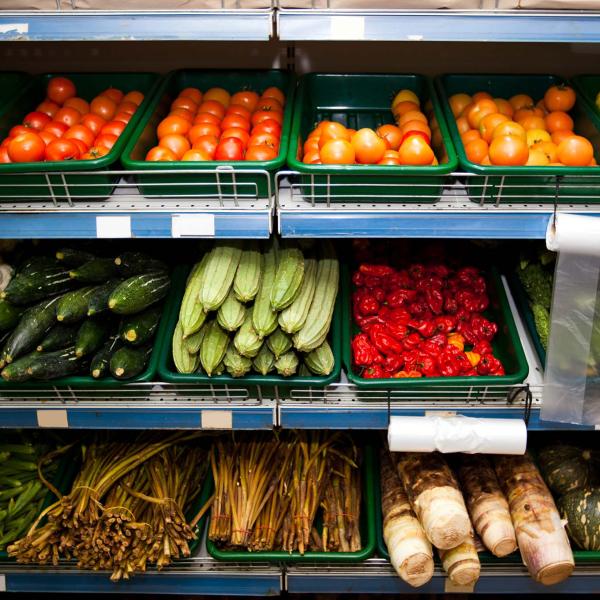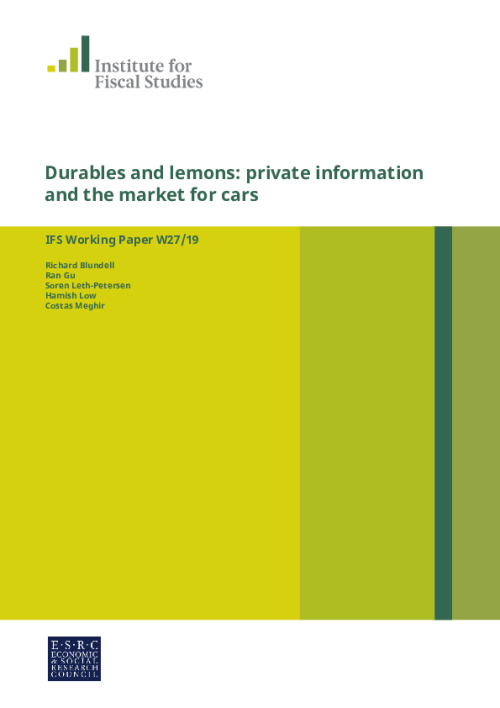Downloads
We specify an equilibrium model of car ownership with private information where individuals sell and purchase new and second-hand cars over their life-cycle. Private information induces a transaction cost and distorts the market reducing the value of a car as a savings instrument. We estimate the model using data on car ownership in Denmark, linked to register data. The lemons penalty is estimated to be 18% of the price in the first year of ownership, declining with the length of ownership. It leads to large reductions in the turnover of cars and in the probability of downgrading at job loss.
Authors

CPP Co-Director
Richard is Co-Director of the Centre for the Microeconomic Analysis of Public Policy (CPP) and Senior Research Fellow at IFS.

Research Fellow University of Oxford
Hamish is the James Meade Professor of Economics at the University of Oxford, a Professorial Fellow of Nuffield College and a Research Fellow at IFS.

Research Fellow Yale University
Costas is a Research Fellow of the IFS and a Professor of Economics at Yale University and a Visiting Professor at University College London.

Research Associate University of Essex
Ran is an IFS Research Associate and a Lecturer at the University of Essex interested in understanding household and firm behaviour.

Research Fellow University of Copenhagen
Søren is a Professor of Economics and Deputy Director of Centre for Economic Behaviour and Inequality (CEBI) at the University of Copenhagen.
Working Paper details
- DOI
- 10.1920/wp.ifs.2019.1927
- Publisher
- The IFS
Suggested citation
Blundell, R et al. (2019). Durables and lemons: private information and the market for cars. London: The IFS. Available at: https://ifs.org.uk/publications/durables-and-lemons-private-information-and-market-cars (accessed: 6 May 2024).
More from IFS
Understand this issue

What's wrong with inflation?
10 May 2023

Transparency is key to maintaining trust in government. Let’s not cap it
12 September 2022

How should the government tax electric cars?
19 May 2022
Policy analysis

Tax and public finances: the fundamentals
23 August 2023

Poverty
13 July 2023

Is there really an NHS productivity crisis?
17 November 2023
Academic research

Saving by buying ahead: stockpiling in response to lump-sum payments
2 February 2024

Understanding Society: minimising selection biases in data collection using mobile apps
2 February 2024

Sample composition and representativeness on Understanding Society
2 February 2024
